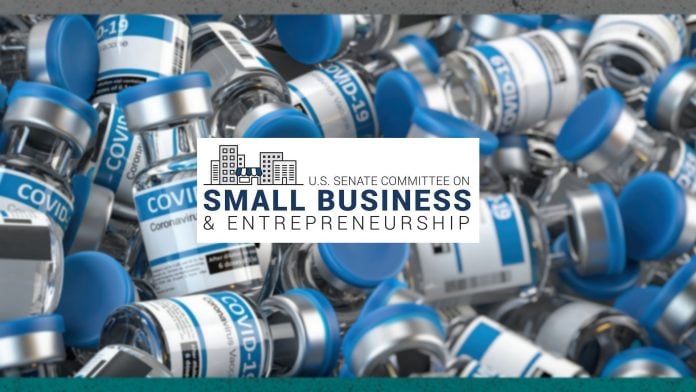In a significant move aimed at strengthening American manufacturing and enhancing accountability in federal spending, the U.S. Senate Committee on Small Business and Entrepreneurship recently advanced two critical bills proposed by Chair Joni Ernst (R-Iowa). These initiatives are geared toward providing small businesses with essential resources while ensuring that COVID-related fraudsters are brought to justice.
With a strong statement on economic growth and accountability, Ernst remarked, “Republican leadership is unleashing growth across the country and making government more accountable to taxpayers.” At the core of this legislative effort is the Made in America Manufacturing Finance Act, designed to bolster domestic manufacturing, which has seen substantial growth in recent years. With manufacturing loans having surged by a staggering 74% during the Trump administration, this Act aims to further increase access to capital for small businesses.
One of the most significant changes proposed under this Act is the doubling of the individual loan limit for the 7(a) and 504 small manufacturing loans from $5 million to $10 million. This shift could be a game-changer for small business owners looking to invest in new equipment, hire additional employees, or expand their operations. As small business owners often grapple with tight budgets and funding challenges, this increased loan limit can provide the necessary financial backing to catalyze growth.
Furthermore, the SBA Fraud Enforcement Extension Act seeks to hold accountable those who exploited pandemic relief funds, extending the statute of limitations for pursuing fraudsters from five to ten years. This legislation arises in response to a concerning report highlighting the Small Business Administration’s (SBA) failure to act against nearly two million individuals suspected of misappropriating COVID aid. By increasing the time for enforcement, this Act aims to recover misused funds from programs such as the Shuttered Venue Grant Operators Grant (SVOG) and Restaurant Revitalization Fund (RRF).
For small business owners, these initiatives offer both opportunities and challenges. On one hand, the potential for increased funding through the Made in America Manufacturing Finance Act can facilitate strategic business decisions geared toward expansion and modernization. Many entrepreneurs may find this expanded access to capital vital for enhancing operational effectiveness or diversifying their product offerings.
Conversely, the heightened scrutiny surrounding pandemic aid can create additional compliance burdens. Small businesses already managing tight operational margins may face increased pressure to ensure their procurement processes are transparent and well-documented. Understanding the implications of the SBA Fraud Enforcement Extension Act will be crucial for small business owners who accessed pandemic-related funding, as the extended statute of limitations means they could still be scrutinized for compliance and appropriate use of those funds for years to come.
As these bills gain traction, small business owners should stay informed about the progress and specifics of the legislation. Ernst’s moves signal a governmental shift prioritizing economic recovery and accountability. With the prospect of enhanced funding and the gravity of compliance considerations, small business operators should evaluate their strategies and readiness to adapt to new regulatory landscapes.
As the committee moves forward with these proposals, the business community is watching closely. The balance between opportunity and regulation will likely shape the future landscape for small manufacturers and service providers alike. Owners are encouraged to engage with their local representatives, attend informational webinars, and explore resources connecting them with financial institutions poised to lend under these new provisions.
For more details on the legislative developments and their potential implications, you can read the original press release here.
Image Via Envato: maxxyustas



